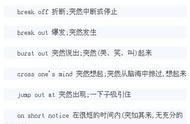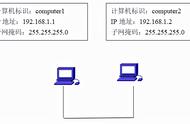一般将来时是英语中一种时态,表示将来某一时段的动作或状态。
构成
一般将来时的构成为:主语 助动词 will 动词原形。
- 肯定句:I will go to school tomorrow.
- 否定句:I will not go to school tomorrow.
- 疑问句:Will I go to school tomorrow?
用法
一般将来时主要用于以下几种情况:
- 表示将来某一时段的动作或状态。例如:
- I will go to school tomorrow. 我明天会去学校。
- she will watch TV tonight. 她今晚会看电视。
- The sun will rise in the east tomorrow morning. 明天早上太阳会从东方升起。
- 表示预测或推断。例如:
- He will win the game. 他会赢得比赛。
- She will be a doctor in the future. 她将来会成为一名医生。
- The world will be a better place in the future. 未来世界会变得更加美好。
- 表示意愿或决心。例如:
- I will help you with your homework. 我会帮你做作业。
- She will learn English well. 她会学好英语。
- We will go to the park tomorrow. 我们明天会去公园。
注意事项
- 有些动词在一般将来时中表示状态,而不是动作。例如:
- I will be happy tomorrow. 我明天会很开心。
- He will be tired tonight. 他今晚会很累。
- She will be sad when she leaves. 她离开时会很伤心。
- 有些动词在一般将来时中表示变化或发展的趋势。例如:
- Prices will be rising tomorrow. 明天物价会上涨。
- Technology will be developing rapidly in the future. 未来科技将发展迅速。
- The world will be becoming smaller. 未来世界将变得越来越小。
常见搭配
一般将来时常与以下词组搭配使用:
- tomorrow:明天;
- next week:下周;
- next month:下个月;
- next year:明年;
- in the future:将来;
- when I grow up:我长大后;
- when I get married:我结婚后;
- when I have children:我有孩子后。
希望以上内容对您有所帮助。












